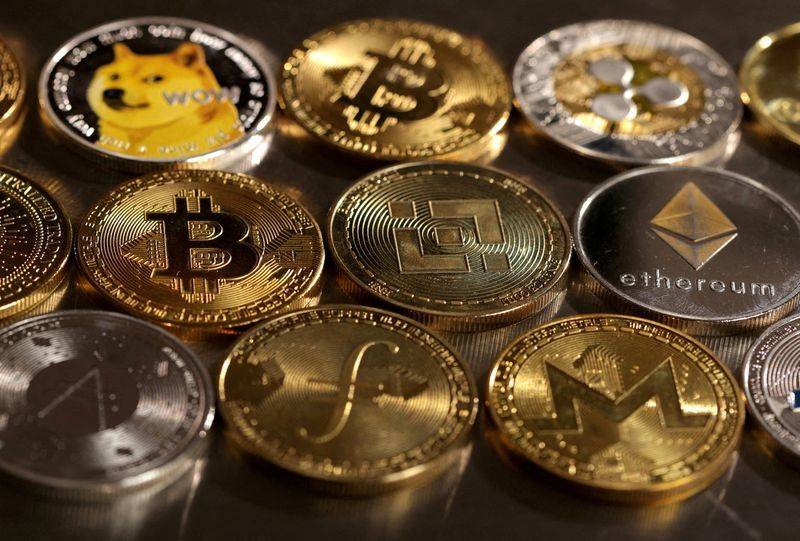 |
|
 |
|
 |
|
 |
|
 |
|
 |
|
 |
|
 |
|
 |
|
 |
|
 |
|
 |
|
 |
|
 |
|
 |
|
Cryptocurrency News Articles
From national Bitcoin reserves to CBDC abolition, unlocking Trump’s crypto promises and their implications for Korea
Feb 02, 2025 at 03:05 pm
Four days into his second term, US President Donald Trump issued an executive order on Jan. 23 to promote cryptocurrency, triggering delayed excitement within the industry and propelling Bitcoin back to its previous record high.

Four days into his second term, US President Donald Trump issued an executive order on Jan. 23 to promote cryptocurrency, triggering delayed excitement within the industry and propelling Bitcoin back to its previous record high.
The order largely reiterates Trump’s pro-crypto stance, including calls for the creation of a presidential working group to shape policy and halting the establishment of a US Central Bank Digital Currency.
The digital asset market has reacted sharply to even the slightest moves -- or lack of them -- from Trump, indicating the heightened volatility that the global market is likely to experience as he prepares sweeping reforms to the cryptocurrency regulatory landscape.
Amid this global crypto enthusiasm boosted by expert predictions that remain bullish, South Korea -- a major player in the cryptocurrency market -- finds itself torn between investors calling for faster regulatory reform and the cautious approach of policymakers. The country remains behind the US and other advanced nations in developing a comprehensive regulatory framework.
Here, we take a closer look at Trump's vision and its significance for South Korea.
Crypto-Banking Collaboration
Evident changes are already underway in the US, including the withdrawal of a controversial framework that outlined strict disclosure for financial firms holding crypto.
The rule, SAB 121, had mandated that financial firms classify crypto held for customers as assets and liabilities. Both the financial and crypto sectors criticized it, arguing that it weakened banks' capital stability and hindered the growth of crypto services by not recognizing the unique nature of digital assets.
Last month, the US Securities and Exchange Commission rescinded the rule, removing a significant barrier for banks entering the crypto custody market and signaling a shift toward greater integration of traditional finance and cryptocurrency.
In contrast, Korea has made slower progress in that part. Currently, there is no legal basis for banks to offer direct crypto custody, as digital assets are not recognized as trust assets under the Capital Markets Act.
In response, local banks have partnered with crypto firms to establish virtual asset custody services. For example, KB Kookmin Bank co-founded KODA with Haechi Labs and Hashed, while Shinhan Bank teamed up with Korbit to create KDAC.
However, even such efforts have faced challenges due to underdeveloped regulations, with restrictions on corporate crypto engagement being a significant obstacle.
Currently, corporations in Korea are limited from opening real-name accounts, preventing them from trading cryptocurrency assets in Korean currency won through exchanges and limiting their ability to fully utilize digital assets.
There has been some progress recently, with Korea's Financial Services Commission announcing plans gradually to allow real-name accounts for corporations, with FSC Chair Kim Byoung-hwan promising a “swift review.”
K.P. Jang, chief strategy officer of Seoul-based crypto research platform Xangle, believes that allowing corporations to invest in cryptocurrencies is the first and foremost step required in advancing the domestic crypto landscape.
"Expanding corporate cryptocurrency accounts swiftly is crucial," said Jang. "Allowing businesses to trade and hold digital assets will help them explore new business models, driving innovation in the private sector and boosting the vitality of the broader digital asset ecosystem."
Rise of stablecoins, Fall of CBDCs
Trump’s executive order also highlights his support for stablecoins, or privately issued digital currencies pegged to assets like the US dollar. Namely, USDT is an example designed to be a digital substitute for the dollar.
Unlike government-controlled central bank digital currencies, stablecoins fuel demand for the dollar and US Treasuries while limiting government oversight of individual transactions. Trump has vowed to halt US CBDC development, declaring, “Forget it -- there will never be a CBDC while I’m president.”
Trump frames his opposition as a defense of privacy while industry insiders see a more strategic motive. More than 130 nations are developing CBDCs, with China and Russia already testing crossborder transactions to challenge dollar dominance.
"Unlike CBDCs, which require significant investment, stablecoins bolster the dollar’s dominance in a cost effective way while maintaining stability," said Xangle researcher Choi Seung-ho, adding, "With China expanding its digital yuan, the US is likely countering by strengthening dollar-pegged stablecoins and private market-driven payment networks."
Experts argue that Korea must embrace both CBDCs and stablecoins.
“Even if Trump rejects CBDCs, central banks worldwide are advancing their own to enable faster, cheaper and more secure transactions between financial institutions. It’s a financial sector evolution that Korea must continue,” said Kim Kab-lae, senior researcher at the Capital Market Research Institute.
Korea plans to test its “digital won” this year, issuing deposit tokens -- bank deposit-based digital payment instruments -- to integrate digital payments into the traditional monetary system.
Stablecoin regulation, Kim stressed, must be tackled separately.
“Korea must weigh the impact of stablecoin expansion on dollar dominance and financial stability while ensuring investor protection. USDT is one of the country’s most actively traded virtual assets, yet its regulatory framework lags behind the US, where strict reserve and redemption requirements ensure value stability
Disclaimer:info@kdj.com
The information provided is not trading advice. kdj.com does not assume any responsibility for any investments made based on the information provided in this article. Cryptocurrencies are highly volatile and it is highly recommended that you invest with caution after thorough research!
If you believe that the content used on this website infringes your copyright, please contact us immediately (info@kdj.com) and we will delete it promptly.
-

-

- ory landscapes, expanding its ecosystem, and embracing sustainability positions it as a formidable player in the crypto space. For investors seeking a blend of regulatory clarity, market resilience, and real-world utility, Ripple (XRP) presents a compelli
- Feb 06, 2025 at 07:26 pm
- in (BNB): The Utility Token that Powers the Binance Ecosystem
-

-

-

- Remittix (RTX) – The Future of Crypto Payments
- Feb 06, 2025 at 07:26 pm
- While meme coins struggle, Remittix (RTX) is proving that real-world solutions drive long-term success. Unlike speculative tokens, RTX focuses on solving a massive global issue: making international payments faster, cheaper and easier.
-

-

- Arctic Pablo Coin (APC) Redefines Meme Coin Presales with Its Unique Approach to Scarcity and Exciting Presale
- Feb 06, 2025 at 07:16 pm
- As other cryptos like Internet Computer Protocol (ICP) and GALA continue to make strides in their respective markets, Arctic Pablo Coin is taking a different route.
-

- 5 Cryptocurrencies To Watch That Could Make You Rich by 2025
- Feb 06, 2025 at 07:16 pm
- The crypto world may be on the cusp of a breakout, with several lesser-known coins showing signs of explosive growth. Five particular cryptocurrencies are emerging as potential frontrunners that could transform financial fortunes by 2025.
-





























































